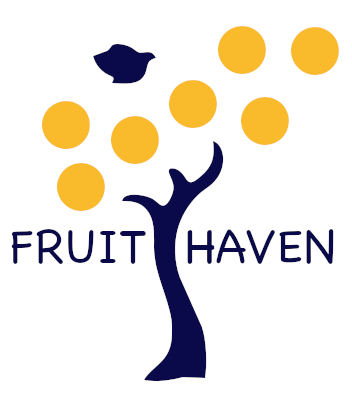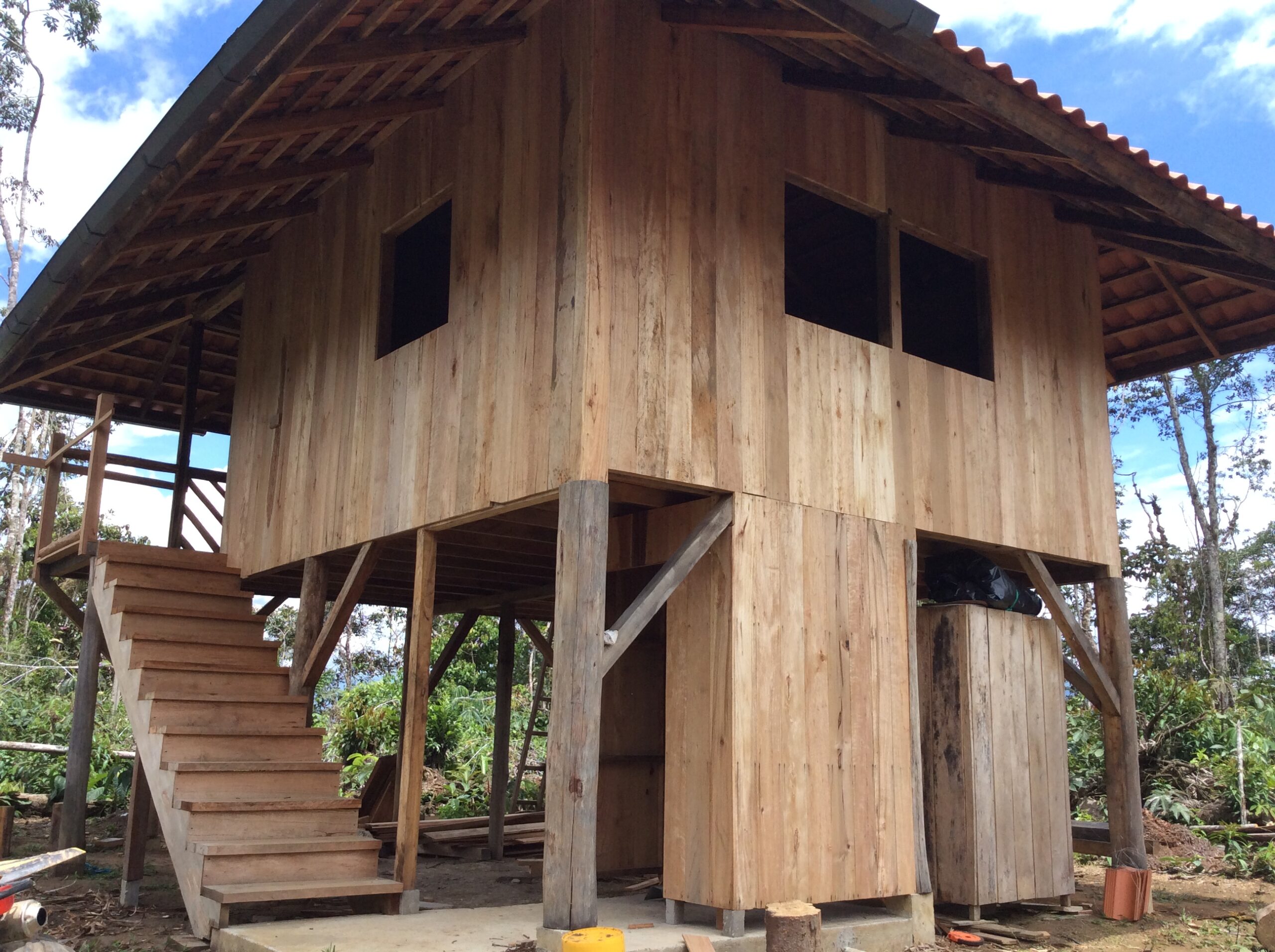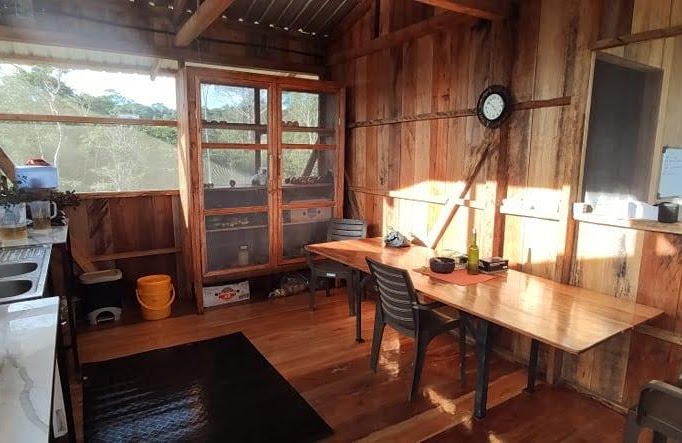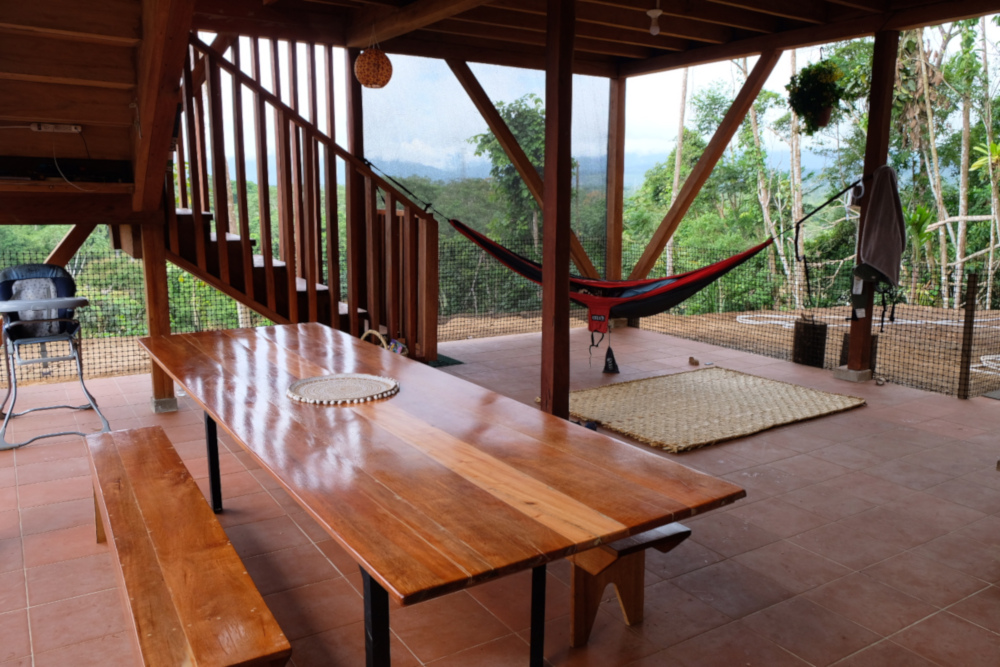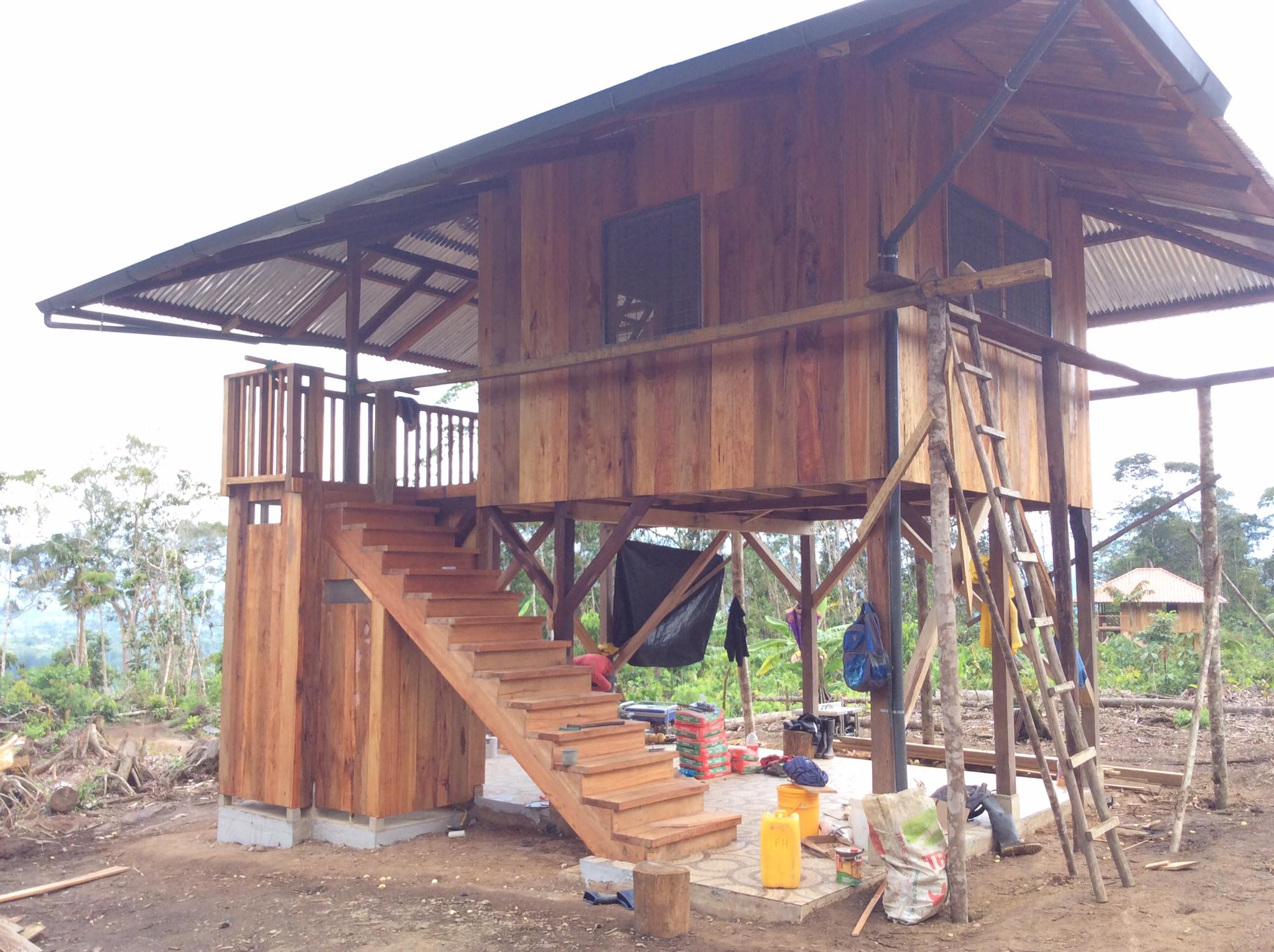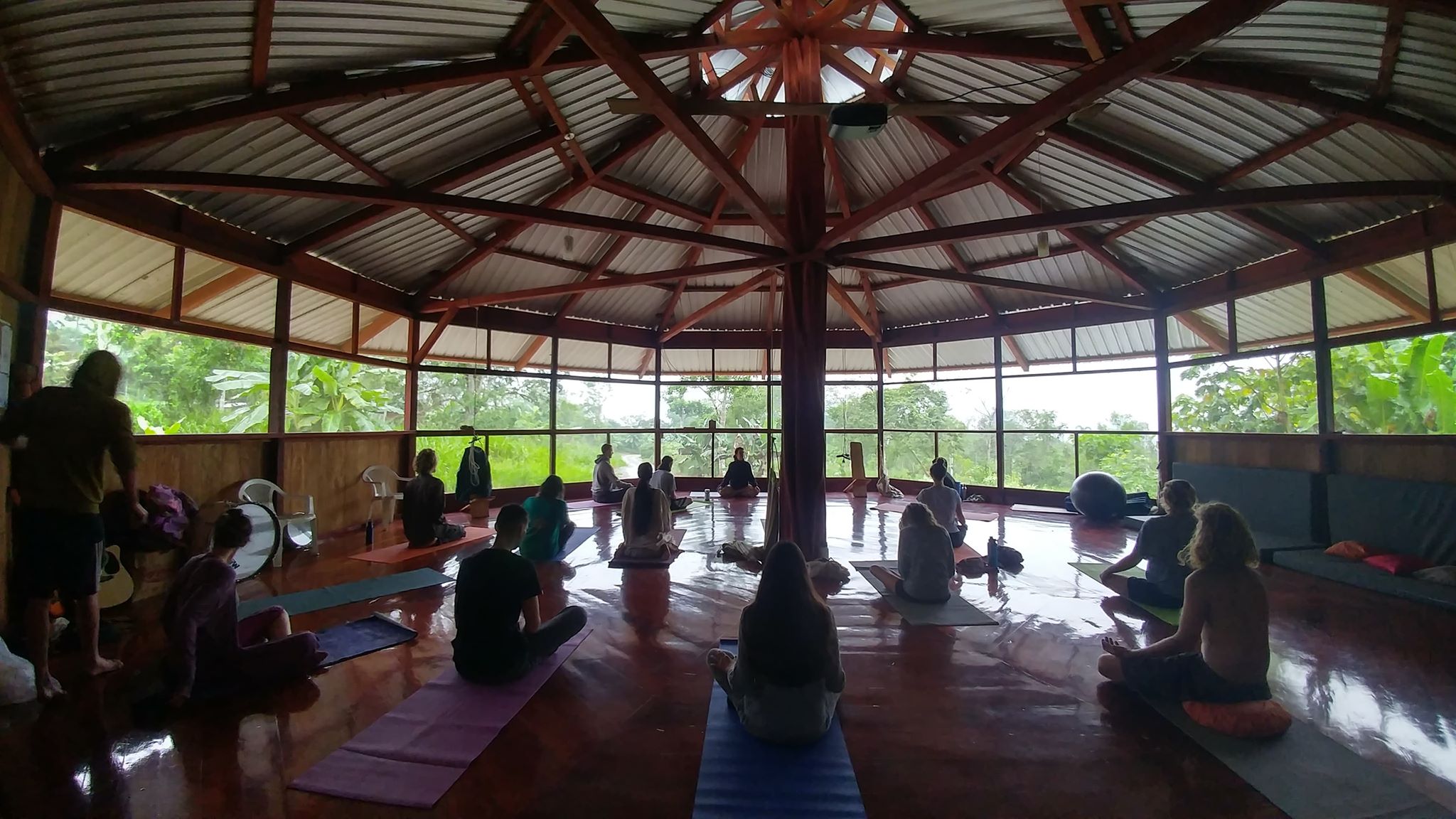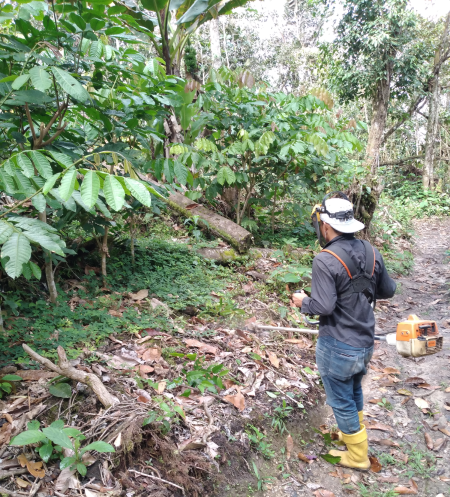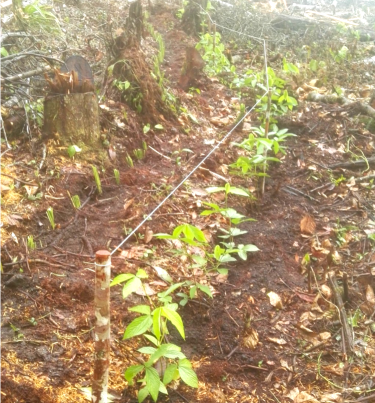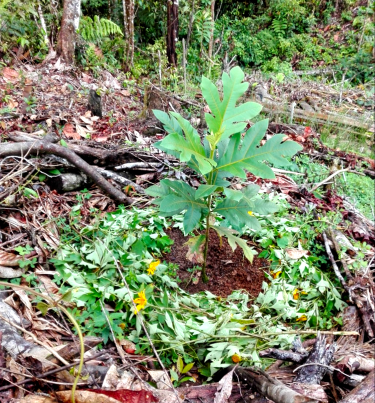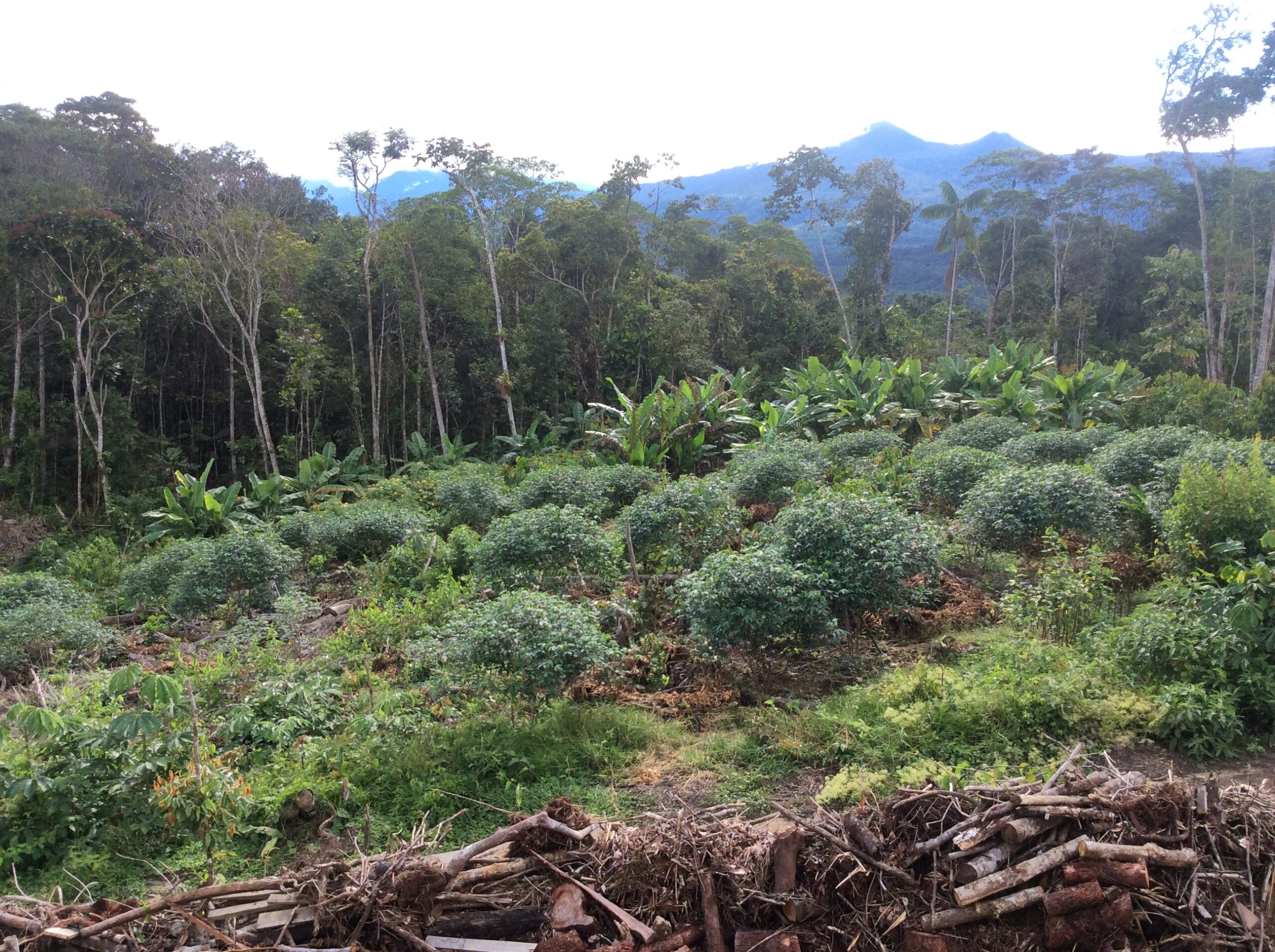Developing Your Lot
The community can help you develop your private homestead lot at Fruit Haven. Whether you want to build a house or plant a food forest, read on for more information.
Managed Construction
Our team of construction workers can make your dream into a reality. We can provide cost estimates, blueprints, and project management, including full financial records for your project.
The Team
Our project manager, permaculture design assistants, accountants, supervisors, workshop manager, and nursery manager all work together to help your food forest and house come together smoothly. We can act as consultants and provide minimal assistance to the owners who live here and prefer to DIY, or we can provide full-service project management and implementation for owners who wish to develop from afar.
Food Forests
Permaculture and planting fruit trees is our second nature! We can help you plan your food forest, and then get boots on the ground to plant everything. We can do soil amendments, swales, companion planting, ground covers, and our nursery has a wide variety of exotic tropical fruit trees.
Construction Basics
Click on a tab to find out more on each topic.
- House Construction - Basics
- Water Hookup
- Landscaping
- Auxiliary Structure
- Wood
- Concrete/Brick
- Roofing
- Earthen/Bamboo/Other
- Solar Power
- Grid Hookup
- Internet
- CHEAP Rustic Cabin
Fruit Haven staff can take care of plans/blueprints, materials orders, hiring workers, etc, making the task easy for you, especially if you are unable to come down here and oversee the project yourself. We have experience with managing construction projects, having already made many structures here.
Many factors influence the cost of a house – primarily its size, the type of roof material, and the amenities (plumbing, bath, hot water, electric/solar, etc.) In general, a house or cabin can cost between $300 and $1000 per square meter depending on those factors.
If you own land at Fruit Haven and want to get started with the construction process, send us an email. We can provide you with an estimate, followed by blueprints and a construction contract. Once you approve of the project, we can get most cabins completed within 6 months.
We usually provide pressurized running water via gravity-powered water systems. They have an intake high up on a mountain stream or at a spring, with a reserve tank that helps filter sediment. Then, we use HDPE tube to bring it down to the community buildings.
Some Fruit Haven properties have a community water system that brings water to all the lots. For a small cost you can hook up a line from your house to this water system and have pressurized water.
Some properties have private water systems shared by various private homestead lots, depending on your lot location relative to these systems. In this case, you can also pay a small amount for hookup rights and connect a line to your house.
Owners of the Fruit Haven properties, or the private water systems, do not pay a monthly water bill and we do not hook up a water meter. However, they do pay a share of yearly system maintenance based on the hose diameter that is hooked up to their lot. This is usually included in yearly property maintenance budgets for the Fruit Haven properties.
We can install rainwater catchment systems if you want that as well, however, this does not provide much pressure unless you have multiple buildings and your catchment reservoir is more than a few meters higher than your spigots.
We have numerous options for water filtration available, ask us for details.
For all your earth-moving needs, we usually have an excavator available that can help with the following:
- Entrances and driveways
- Access roads
- Ponds and pools
- Swales
- Flattening areas for house construction
- Drainage ditches
Usually at the beginning of a construction project, we build a structure designed to keep the rain off of workers and store materials. This 3 x 3 meter post structure with a metal roof costs around $400-$500. To prevent tool theft, we also recommend building a lockable wooden tool cabinet in this structure, which can cost between $300-$400 depending on quality.
This type of structure can also be used to camp under as it provides good rain protection for tent camping and food prep.
For all wooden constructions we use various exotic tropical hardwood varieties that are resistant to termites and boring insects. These woods, though naturally resistant, can be further treated to increase longevity.
Beams can be used freshly milled. Planks for walls and floors must dry for 6-12 months so that they can be installed without shrinking and leaving gaps. We typically use shiplap planks for floor and walls to further prevent gaps and increase strength.
Standard beam dimension here for post and beam construction is 10x10cm but for increased longevity, on some structures we use larger dimensions such as 12x12cm or 10x15cm.
In wood cabins, we still like to use cement / brick / ceramic tile elements for bathrooms and showers when possible.
Houses entirely made with cinder block / plaster or brick walls are more expensive per square meter than wooden houses. Wood cabins with a tiled cement floor underneath for kitchen/bath seem to be a popular choice here.
We can do: Granite counters, ceramic tiling on floors or walls, poured cement structures, red brick or cinder block walls, plaster, refractory cement (firebrick), bathtubs, hot tubs, bases for communication towers, and all manner of cement/brick wizardry. Stone is also an option but depending on your location, transport might be pricey. FH10 has a lot of large stones but FH1-9 don’t have as much stone available.
Zinc galvanized corrugated steel: Cheapest option available. Lasts 8-10 years.
Aluminum galvanized corrugated steel (“Galvalum”): Costs twice as much in materials as the zinc. Lasts 15-20 years.
Fiberglass-reinforced corrugated cement (Eternit): Must be painted. Costs about 50% more than aluminum in materials. Costs 3x in transport and 2x in labor. Deadens rain noise and insulates. Lasts up to 25 yrs depending on your maintenance.
Clay tiles (interlocking): Looks really nice, deadens rain noise and insulates. Lasts 60+ years with occasional maintenance. Materials and labor and transport are all 2-3x the cost of aluminum roofing.
Thatch roof: Costs about as much as the zinc roofing or a bit more, total cost is mostly labor and transport. Can last 7-10 years if well done and regularly maintained. Some limitations on building style.
With any roofing except thatch, you can decide whether you want a wooden sublayer or ceiling under it, or if you want to directly see the roof material looking upwards.
For all materials except clay tiles and thatch, there are transparent polycarbonate panels available that fit in with the corrugation so you can have a clear panels without the annoyance of a constantly leaking skylight.
We can also work with the following methods and materials:
- Bamboo
- Wattle and daub
- Rammed earth
We have experience with the first two but not the third.
Bamboo is higher in labor cost than wood, but slightly lower in materials cost.
Wattle and daub, and rammed earth, are labor intensive and probably closer in price to block cement or poured cement walls. However, they provide natural insulation and soundproofing as well as longevity.
Most remote homestead lots at Fruit Haven are far from a powerline and it would be cheaper to install solar power. Most people prefer to be off-grid with solar panels and a backup gas generator.
- For 1-2 people, with basic needs such as laptop, internet, charger, some lights etc, occasional blender use, you can install a system for around $2000 that includes: 400W of panels, 200Ah of batteries, and a 3500W inverter.
- For 2+ people with more extensive needs such as frequent blender and juicer use, hair dryer, dehydrator, etc, you can install a system for around $3000 that includes: 400W of panels 400Ah of batteries, and a 3500W inverter.
- For even more extensive needs you can install 800W of panels with 400Ah of batteries with a 3500W inverter for around $3500.
These are not exact prices; every installation depends on many factors such as your personal needs and the specifics of your house. However, you can use these figures as a general reference to plan your project. We can provide custom quotes for very large systems, grid-tie hookups, solar/generator switches, nickel iron or lithium iron phosphate batteries, etc.
Check out Peter’s solar power class here: https://www.youtube.com/watch?v=s9jEmh7E0zQ
Some Fruit Haven properties, such as FH4 and FH10, have a powerline nearby or running through them.
A 5-10 kva transformer can be installed for between $3-$5k depending on the distance from the house to the powerline, how many poles need to be installed, and the size of the transformer. We use an electrical engineer for these installations, who provides a contract price depending on the specifics of the installation.
Anywhere on any Fruit Haven property we can install internet via broadband antenna. The monthly cost of the service is $30/month for 6 MBPS up/down. You can get higher speeds or dedicated bandwidth for additional cost.
The install cost is usually $150.
We are in talks with our provider to install fiberoptic internet throughout Fruit Haven in the coming years.
If you are on a budget and are looking for someting really basic and cheap, you can build a 3×4 meter / 10×13 feet “rustic cabin” for around $4000.
This cabin would be built with rough-cut wood, and the wallboards would later shrink slightly leaving 1/4″ gaps that can later be filled with thin strips of wood. This price includes locking door and latching window shutters, and a corrugated sheet metal roof (steel galvanized with 100% zinc.) The price includes no amenities, so ask us for the cheapest options for solar power or backup generator, gravity-powered water hookup, etc.
Looking to go even cheaper? We can build you a 3×5 meter roofed tent platform for around $2200. This is a wooden floor on cement footings with a frame and single-slope corrugated sheet metal roof. Perfect to set up a tent and camp on.
Food Forest Basics
Click on a tab to find out more on each topic.
Contact us if you are interested in having fruit trees planted on your Fruit Haven lot. We can provide a cost estimate based on the area you want planted, which fruit trees you’d like, and other factors.
The project can be managed by one of our permaculture designers and we can take care of the maintenance as well. Many people wish to have a food forest planted in advance so by the time they move down here, they already have fruits producing. See the other tabs in this section for more info.
Total project cost can vary widely depending on these factors:
- The total area you want planted
- Whether your land is already cleared, and whether it has pasture, brush, or secondary forest (clearing can cost approx. $2k per hectare)
- How densely you want it planted
- If you want specialty plants that require structures or poles, like mysore raspberry or dragonfruit
We have a wide selection of fruit trees in our nursery.
You can check out our plant list
Or you can check out our nursery catalog which is in development
Note: Some things that are “out of stock” on the list, are actually in stock, and some items that say we have several, we may have run out of. Contact us to find out if we have what you are looking for.
When we provide an estimate for a planting project, it will by default include some of these soil amendments, which are commonly depleted in soils. You will get much faster and more sustainable growth from your trees with these organic minerals.
- Limestone (calcium carbonate) – used to alkalinize the soil as well as provide calcium
- Epsom salt (magnesium sulfate) – important for chlorophyll production, also commonly deficient in soils
- Rock phosphate with trace minerals – essential for initial root formation and later on for strong fruit set. Similar to rock dust. Contains many trace minerals such as boron, manganese, and zinc.
When starting a planting projects, we take many things into consideration when planning the placement of fruit trees:
- General lay of the land; topography
- Wet areas and well-draining areas
- Contour lines
- Landmarks such as buildings, property boundaries, powerlines
- Natural shade (we can take advantage of this for trees that prefer shade when young such as cacao, mangosteen, durian, and achacha
After initial clearing of brush, we do an area application of soil amendments. We mark contour lines and make a rough map of the location of all fruit trees. Then we plant lines of nitrogen-fixing chop and drop plants such as large-leaved flemingia (flemingia macrophylla) and ice cream bean (inga edulis), non-leguminous chop and drops such as mexican sunflower (tithonia diversifolia), and ground covers and other companion plants such as pinto peanut (arachis pintoi) and vetiver grass (chrysopogon cizanioides).
Once those are planted, we begin preparing the planting spots for the fruit trees, also adding certain soil amendments to each planting hole, with a mulch pile around each tree and pinto peanut establishing outside of the mulch pile. We already have many established food forests growing at Fruit Haven, producing new rare fruits every year.
Once your fruit forest is planted, you’ll be surprised how fast the weeds grow! While your trees are small, they’ll need a considerable amount of care. This includes weedwhacking the areas between the fruit trees, chopping the “chop and drop” plants with machete to make mulch rings around the fruit trees, replacing any plants that die, and pulling weeds manually right around the trees. It’s also a good idea to apply compost/manure every 4 months for the first 2 years, and sometimes a second application of limestone if your soil needs to be alkalinized further.
Obviously, individual situations vary, and every food forest is different. A one-hectare planted area may cost between $60 and $100 per month to maintain well depending on the specifics. So a half-hectare food forest may cost $40-$60 to maintain per month. Again, this depends on various factors and your maintenance may cost more or less. During the first couple years the most maintenance is required, and then once the trees grow bigger and begin to produce, the costs drop.
Some people on a budget may wish to spend as little as possible on maintenance, just cutting weeds enough so that the trees don’t die and not applying additional amendments, compost, or mulch piles. This is perfectly find and understandable. However, keep in mind that these fruit trees will grow much slower, and will take longer to bear fruit than a well-cared-for fruit forest.
Accounting

Flexibility
Send funds for your project with a variety of payment methods, including:
- Bitcoin
- Other cryptocurrencies
- Wise
- PayPal
- Venmo
- Interac (Canada)
- International wire transfer (SWIFT)
- MoneyGram
- Western Union
- Domestic US wire
Generally Accepted Accounting Principles
All expenses for your project are tracked using double-entry accounting software. You can check your accounting file at any time on our cloud server. All receipts are saved (and scanned on request.)
Decentralized
Our accounting team works together to ensure your project expenses are made in a responsible way. Multiple cash custodians handle disbursement of funds. Each accounting task (funds request and receipt, payroll, materials purchases, purchase accounting, review) is done by different people, each checking the work of the others.
Integrity
We’ve completed dozens of construction and planting projects over the years. You can trust us to handle your project in a professional way, avoiding typical amateur mistakes such as scope creep, under-estimating labor, and using low quality techniques or materials.
